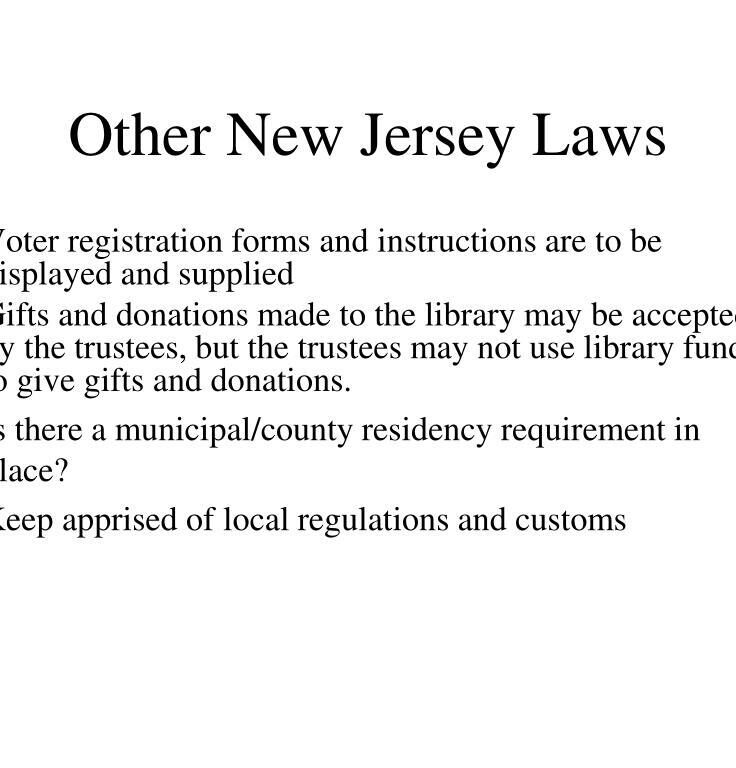Common Law in New Jersey: Legal Rights and Limitations
Common law in New Jersey plays a vital role in shaping the state’s legal system. It consists of laws developed through court decisions rather than written statutes. Understanding common law is essential for recognizing how legal precedents influence individual rights and obligations in New Jersey. This body of law adapts over time, reflecting societal changes and judicial interpretations, thus providing a flexible framework for justice.
Historical Background of Common Law

The roots of common law can be traced back to medieval England, where judges made decisions based on customary practices and previous rulings. When settlers arrived in New Jersey, they brought these legal traditions with them. The early colonial courts relied on English common law, which laid the foundation for the state’s legal system.
Over the years, New Jersey courts have shaped common law through landmark decisions that reflect the evolving values of society. Here are some key historical points:
- 1664: New Jersey becomes a colony, adopting English legal principles.
- 1776: Declaration of Independence prompts legal reforms.
- 1947: New Jersey adopts a new constitution, emphasizing individual rights.
- Recent years: Courts continue to refine common law in response to contemporary issues.
Key Principles of Common Law
Common law is guided by several key principles that help ensure fairness and consistency in legal proceedings:
- Precedent: Courts rely on past decisions (stare decisis) to guide current cases, ensuring similar cases are treated alike.
- Judicial Interpretation: Judges interpret laws based on their intent, context, and societal values.
- Flexibility: Common law can adapt to new situations and societal changes, allowing for a more responsive legal system.
- Equity: Courts have the power to provide remedies that are fair and just, not strictly bound by legal rules.
These principles ensure that common law remains relevant and continues to serve the people of New Jersey effectively.
Legal Rights under Common Law
Under common law in New Jersey, individuals enjoy various legal rights that have developed through court decisions over time. These rights help protect citizens and ensure justice in different situations. Here are some essential rights recognized under common law:
- Right to a Fair Trial: Every individual has the right to a fair and impartial trial, where their case is heard without bias.
- Right to Privacy: Common law recognizes the importance of privacy, protecting individuals from unwarranted intrusion into their personal lives.
- Property Rights: Individuals have the right to own, use, and dispose of property without unlawful interference.
- Contractual Rights: Parties to a contract are entitled to have their agreements honored, with legal recourse available if terms are violated.
Additionally, common law also provides remedies for breaches of these rights. Individuals can seek compensation through tort actions, such as negligence claims, if their rights are infringed. Understanding these rights is crucial for New Jersey residents as they navigate their legal obligations and protections.
Limitations of Common Law
While common law provides essential rights, it also has limitations that individuals should be aware of. These limitations can affect how laws are applied and interpreted. Here are some key constraints:
- Time Constraints: Common law rights can be affected by statutes of limitations, which set deadlines for filing claims. If you miss these deadlines, you may lose your right to seek legal recourse.
- Judicial Discretion: Judges have significant discretion in interpreting common law, which can lead to variability in outcomes based on individual case circumstances.
- Limited Scope: Some issues may not be fully addressed by common law, particularly those requiring specific statutory guidelines or regulations.
- Precedent Dependency: The reliance on precedents means that outdated or unjust decisions may continue to influence current law unless challenged and overturned.
Awareness of these limitations is vital for individuals seeking justice and understanding how their rights are protected under common law.
Comparison with Statutory Law
Understanding the differences between common law and statutory law is essential for anyone navigating the legal landscape in New Jersey. While both play critical roles, they have distinct characteristics:
| Aspect | Common Law | Statutory Law |
|---|---|---|
| Origin | Developed through court decisions and judicial interpretations. | Created by legislative bodies (e.g., state or federal legislatures). |
| Flexibility | Adapts over time through new judicial rulings. | More rigid; changes require formal legislative processes. |
| Application | Based on precedents and individual case circumstances. | Consistent application of written laws and regulations. |
| Scope | Covers areas not specifically addressed by statutes. | Specifically defines rights and obligations in various contexts. |
In summary, while common law offers flexibility and the ability to adapt, statutory law provides clarity and consistency. Both are crucial for ensuring justice and protecting rights in New Jersey.
Common Law in Contemporary New Jersey
Common law continues to play a significant role in the legal landscape of contemporary New Jersey. It serves as a foundation for many legal principles and helps address issues that statutory law may not fully cover. As society evolves, so does common law, adapting to new challenges and changing values.
For instance, recent court cases have highlighted the importance of common law in areas such as:
- Family Law: Issues related to custody and child support often rely on common law principles to ensure fair outcomes for families.
- Personal Injury: Many personal injury cases are resolved through common law torts, allowing victims to seek compensation for damages.
- Contract Disputes: Common law principles govern the enforcement and interpretation of contracts, ensuring that agreements are honored.
Moreover, common law allows judges to create new legal precedents based on unique circumstances, ensuring that justice is served in a way that reflects current societal norms. This adaptability makes common law an essential component of New Jersey’s legal framework today.
Importance of Legal Counsel
Having legal counsel is crucial when navigating the complexities of common law in New Jersey. Whether you are facing a personal injury claim, dealing with a contract dispute, or seeking to understand your rights, a qualified attorney can provide invaluable assistance. Here’s why legal counsel matters:
- Expert Guidance: Lawyers possess the knowledge and experience to interpret common law and advise you on the best course of action.
- Case Preparation: A skilled attorney can help gather evidence, prepare legal documents, and build a strong case on your behalf.
- Negotiation Skills: Legal professionals are trained negotiators, capable of reaching fair settlements without the need for lengthy litigation.
- Court Representation: If your case goes to court, having an attorney ensures that your rights are protected and your arguments are effectively presented.
Ultimately, investing in legal counsel not only helps you understand your rights under common law but also improves your chances of a favorable outcome in your legal matters.
FAQs about Common Law in New Jersey
Understanding common law can raise many questions. Here are some frequently asked questions that might help clarify its significance in New Jersey:
- What is common law? Common law is a body of law developed through court decisions rather than written statutes, evolving over time through judicial interpretations.
- How does common law affect my rights? Common law provides essential protections, such as the right to a fair trial and the right to privacy, helping individuals navigate legal matters.
- Can common law change? Yes, common law is flexible and can adapt based on new court rulings and societal changes.
- Is common law the same as statutory law? No, common law is developed through judicial decisions, while statutory law is created by legislatures and is more rigid.
- Should I hire a lawyer for common law issues? Yes, having legal counsel is highly recommended to navigate the complexities of common law and protect your rights effectively.
If you have more questions about common law in New Jersey, it’s always best to consult a qualified attorney who can provide specific guidance based on your situation.
Conclusion on Common Law in New Jersey
In conclusion, common law in New Jersey serves as a vital component of the state’s legal framework, providing flexibility and adaptability to the evolving needs of society. It establishes important rights while also presenting limitations that individuals must understand. Common law works hand-in-hand with statutory law, ensuring a balanced approach to justice. For residents navigating legal issues, seeking the guidance of legal counsel is essential to effectively interpret and apply common law principles. As New Jersey continues to grow and change, common law will remain an important mechanism for addressing individual rights and ensuring fair outcomes.


